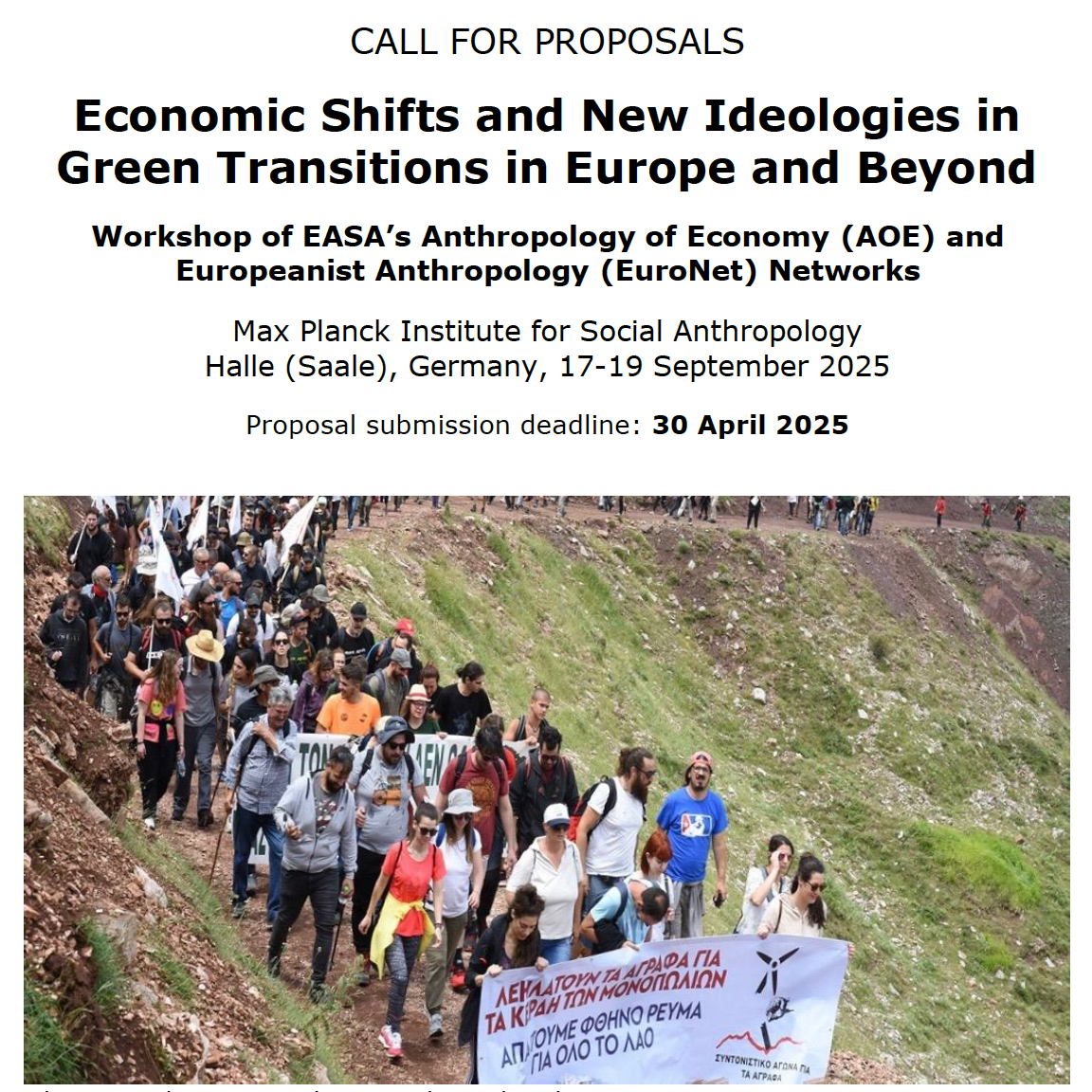Networks: Europeanist Network
The Europeanist network was established on the occasion of the 8th EASA Conference held in Vienna in September of 2004.
Anthropologists and ethnologists who are interested in taking geographical and historical Europe as a frame of reference in their teaching and research endeavours are welcome to join. The aim of the network is to provide a forum for communication and an arena for debate on issues relevant to this region of the world. It should also be instrumental in identifying new themes for research and teaching, and in providing a platform for developing in collaboration relevant projects to deal with these.
Anthropologists and ethnologists who would like to be part of the Europeanist network are kindly requested to fill in the directory of members form.
All EASA members can join the network by subscribing to its mailing list: lists.easaonline.org/listinfo.cgi/europeanists-easaonline.org
Upcoming event:

Climate change and capitalist development are reorganising economic landscapes, shaping future imaginaries, and producing new frameworks for interpreting the present moment, all while dictating political priorities and influencing public opinion across the ideological spectrum. Amidst looming geopolitical threats and fierce competition for leading technologies—such as AI and electric cars—green transition has become central to both public discourse and contemporary politics across Europe. The EU’s green transition champions techno-modernism in an ostensibly ‘just’ fashion, which—in theory—defends the 20th-century social model, where workers are guaranteed jobs and have a say in economic management. In practice, however, even countries committed to just transition struggle to create new green jobs with the same level of job security and labour protections that characterised coal mining and other professions deemed obsolete by climate policies. In Germany, the uncertainties associated with ‘structural transformation’ (Strukturwandel) have fuelled far-right populism in former coal-mining regions. In France, the Yellow Vest movement emerged in response to a fossil fuel tax that was perceived as socially unjust due to its lack of transparency and disproportionate impact on those living far from urban centres. Meanwhile, beyond the core economies of European capitalism, the resource and energy demands of the green transition are turning peripheral regions—such as Greece and Serbia—into new frontiers of exploitation. These processes have sparked various forms of resistance, with communities mobilising against the loss of agricultural land, water resources, and pristine ecosystems due to the expansion of lithium mines, solar power plants, wind turbines, and other large-scale projects. While some people are increasingly concerned about the impact of climate change, others are more apprehensive about the socio-economic consequences of climate mitigation policies.
We aim to explore people’s common concerns, how they are shaped by climate change mitigation and adaptation policies, and how these concerns, in turn, influence political discourse on the green transition, and ultimately the future of Europe —creating a complex political landscape that provides fertile ground for right-wing and populist ideas—across the following (non-exhaustive) set of domains:
- The loss of fossil-fuel powered jobs and the struggle to create ‘green’ jobs.
- New extractive frontiers and their discontents.
- Opposition to green taxes and lifestyle restrictions.
- Conflicts around rewilding and conservation policies.
Please send your paper proposals (including title, abstract of no more than 250 words, and author’s name and affiliation) to easanetwork2025@proton.me by 30 April 2025.
There is limited funding available for precarious scholars and PhD students. If you would like to be considered, please indicate that in your application.
Accepted participants will be expected to pre-circulate 2500-3000-word draft papers by 1 August 2025 to facilitate discussion, which will be conducted in a roundtable format.
Keynote speakers:
Jaume Franquesa, Associate Professor, University of Buffalo, USA
Asta Vonderau, Professor, Martin Luther University Halle-Wittenberg, Germany
Organizing committee:
Ognjen Kojanić, Ieva Snikersproge, Nikolaos Olma, Elena Sischarenco (AOE)
Patrícia Ferraz de Matos, Panas Karampampas (EuroNet)






